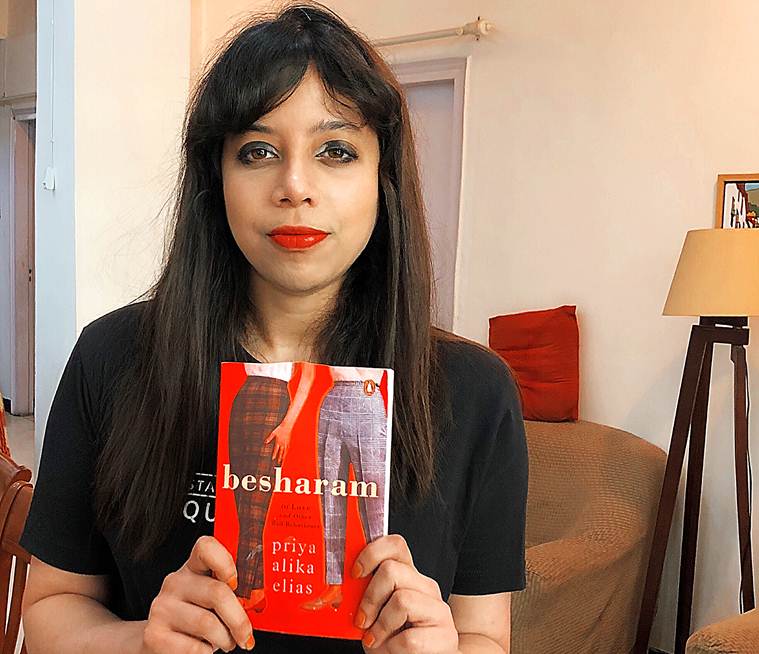
It’s a harsh word — Besharam — and yet so familiar. One can’t deny ever hearing the word hurled in their direction, especially if one is a young woman in India, with the gumption to speak her mind. It is also the title of Priya-Alika Elias’s debut book, a collection of essays that fire several salvos at the patriarchy across seven sections — sex, love, hurt, culture, failure, judgement and independence. The 30-year-old lawyer, writer, and fierce feminist’s part-manual, part-memoir is full of pop culture references and news items from the past decade or so, that elicit a chuckle, a sigh, and lots of nodding at regular intervals. Excerpts from a conversation:
How did this book come about? Was there a catalyst?
I’ve always wanted to write a book for young brown women. I’m currently on a hiatus from practicing law and I’m working as a freelance writer. I guess the catalyst was that I kept being approached for advice on social media — young women desperately need non-judgmental mentors. I believe that radical empathy can change the world.
You’ve written about living with an eating disorder, sexism at workplace and emotionally abusive relationships. Throughout the book, there are mentions of significant events of the past decade that have informed the fight fought by many feminists. How did you decide upon the form of the book?
I think the essay is the perfect format for a book of ideas. A single essay can tie together so many concepts and theories. I wanted to write a book that dealt with the many facets of Indian womanhood, and the best way to do that was to write essays about the problems and stigmas we face.
Malcom X said that “The most disrespected person in America is the Black woman.” Would you say that the most disrespected person in south Asian communities is the woman? To many, smashing the patriarchy seems to be a solution, but that has frightened men to the extent that women are brutally punished for simply speaking out.
Yes. And the further down the privilege ladder we go — take a Dalit or Muslim, or a working-class woman — the more disrespected she is. The solution has to be smashing the patriarchy, yes, but also smashing the oppressive systems that upper class or caste women perpetuate. With regards to men’s violence, I would say our strength lies in numbers. We have to form a united front — we can’t have mothers-in-law protecting sons over daughters.
In India there appears to be a divide between an older generation of feminists and the younger tribe. According to you, what is the older generation missing when it comes to the forms of protest younger feminists are engaging in?
I think the older generation did not have access to the kinds of technologies and social media that we do. Understandably, they think of activism as on-the-ground activism — and might be dismissive of anything else. But for us millennial feminists, we grew up on social media. And a feminism that is built off the back of internet communities, et cetera, is just as valid.
In Besharam, you cite Rupi Kaur and why her poems resonate with young, brown women all over the world. Why have you used her example?
There are so many Western male poets who I don’t think particularly highly of, like Charles Bukowski. I would argue that their work is just as simplistic as Kaur’s, but she’s the one we pile on and criticise, because a young brown woman is the easiest target. Writing about her was important to me — we have to uplift our trailblazing brown women, instead of crushing them with dissent and mean-spirited critiques.
What are you working on now?
A young adult novel about a teenage desi girl in America. I’m excited about it — I think we don’t have too many representations of ourselves in Western culture.